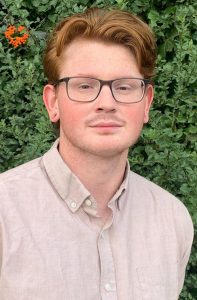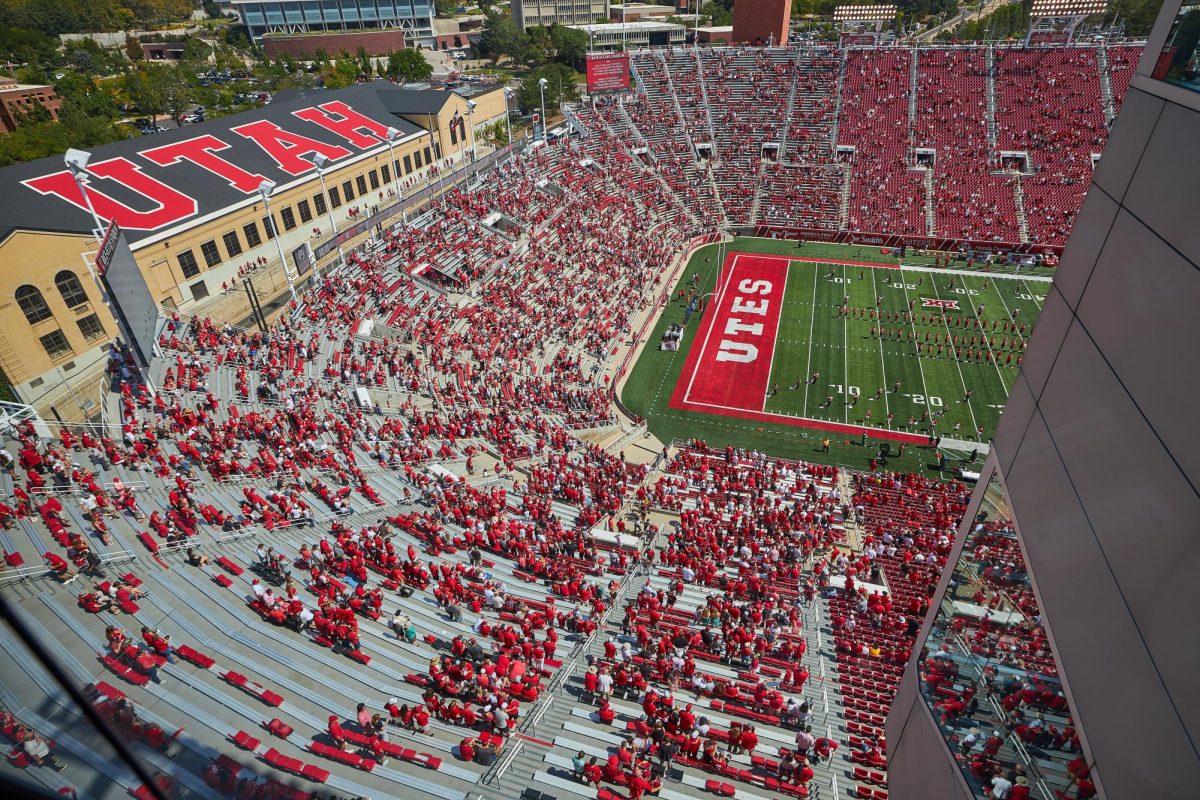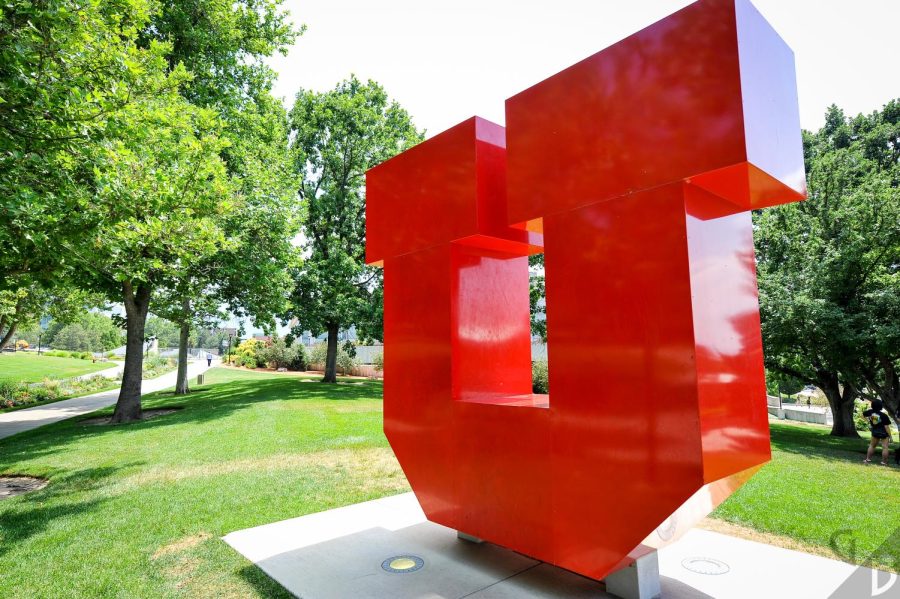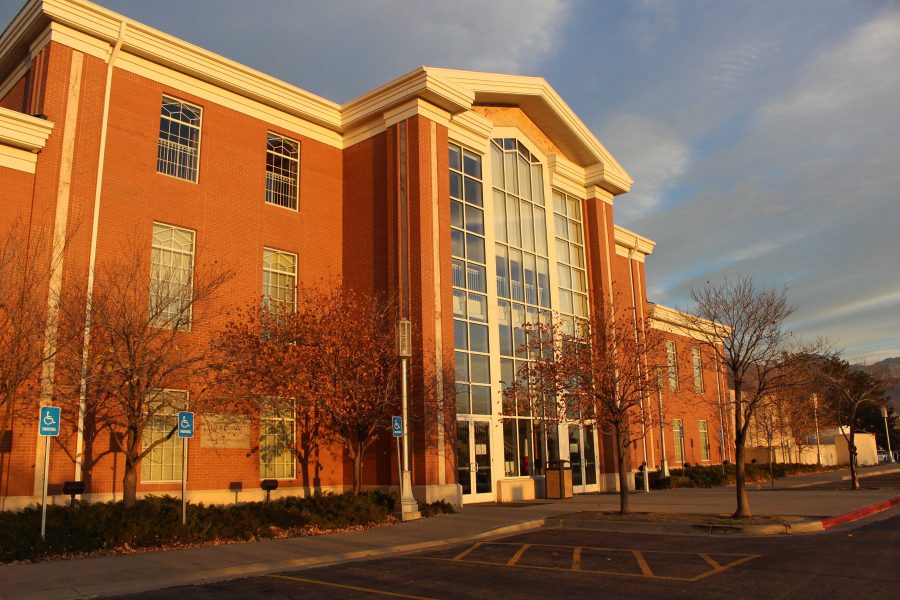U Committee Releases Indigenous Land Acknowledgement
A. Ray Olpin Union at the University of Utah. (Tom Denton | Daily Utah Chronicle)
November 8, 2020
The University of Utah is built on the homelands of the Shoshone, Paiute, Goshute and Ute Tribes. On Oct. 9, 2020, the U acknowledged this fact publicly in an Indigenous Land Acknowledgement.
“The University of Utah recognizes and respects the enduring relationship that exists between many Indigenous peoples and their traditional homelands,” the acknowledgment read.
The U also acknowledges the second Monday in October to be Indigenous Peoples Day.
In fall 2019, the senior vice president of academic affairs, Dan Reed, formed a committee to draft an Indigenous Land Acknowledgement. Elizabeth Kronk Warner, the dean of the S.J. Quinney College of Law (Sault Ste. Marie Tribe of Chippewa Indians) and Mary Ann Villarreal, the vice president for Equity, Diversity, and Inclusion co-chaired the committee.
“What I brought to the co-chair team is being a citizen of a tribe and having grown up in a tribal community and Mary Ann really brought this helpful holistic view of what’s important to the community,” Warner said.
The committee talked about the purpose and process of writing a statement. They consulted the statements of other universities but acknowledged the ways in which the U is distinct.
While the committee was in the process of drafting the statement, however, the COVID-19 pandemic halted the progress until the summer.
“In June and July, we got back to the writing process, and so Mary Ann and I worked on a draft that was sent to the committee, and then the committee marked it up and said these are the problems with it and made it more uniquely Utah,” Warner said.
Warner found the committee’s feedback to be helpful, as they could provide perspectives outside of the legal lens she brought to the table.
The statement then went to the general counsel’s office and senior leadership for approval. The U communications office was also contacted to prepare the statement for the vice presidential debate.
“What a way to really impact not only our own community, but just nationally, because so much literature went out to the national media and the campaigns and to have our statement included in that I thought was really impactful,” Warner said.
Warner said the purpose of the acknowledgment for her is to say the U would not be the institution it is today without this land acquired from indigenous people.
“It’s really important to acknowledge our shared history that absent the fact that this land was acquired from traditional people and from indigenous people, we wouldn’t have the university that we have,” she said. “In some instances, that was ceded territory, in some instances, it wasn’t ceded territory — it was taken from indigenous peoples.”
She also said she liked both the historical and contemporary significance the statement carried.
“Another thing for me that I really like about our statement is it acknowledges both that historical connection to tribes and the fact that, as the state’s flagship university, we still have this ongoing responsibility to native members of our community,” Warner said.
As a historian, Villarreal said it was important to her that the statement recognize history, but also have more significance than simply stating the truth.
“One of the tensions that I think we sat in for a bit was, was this only going to be a statement to be read, or would this have a statement that would be followed, and have meaning, and give us direction?” she said. “The leadership that we’re part of and at the university level is around really setting some beacons of light about where do we want to go.”
Warner said because of the U’s Memorandum of Understanding with the Ute Tribe and various other initiatives to support indigenous communities, she does not believe the statement to be performative.
“We have somebody on staff who is just a liaison to Indian country. We just renegotiated the MOU with the Ute Tribe, we have the American Indian resource center on campus,” Warner said. “At the College of Law, we’re working on a memorandum of understanding with the Navajo Nation. The Huntsman Center has done exceptional outreach in terms of working with tribes.”
Villarreal believes the statement is also impactful because it provides opportunities for conversations surrounding these tensions to take place.
“Are there tensions in the ‘what next?’ Yes. But those are good problems to have. All those conversations are out there. When people can speak freely about those tensions and know that it might take a while for us to work through them,” Villarreal said.
Villarreal uses the statement once or twice a day and Warner said she has used the statement several times since its finalization. The College of Law is currently including it in their new brochure for prospective students.
They are encouraging everyone to use the statement where applicable.
“I use it anytime we’re hosting an event. At the College of Law, we do a monthly book review and so at the start of every book review I use the short version of the statement,” she said. “And then we started to use the longer version of the statement in some of our publications.”
Warner said the statement is significant in that it shows the U administration’s genuine support for this type of work.
“The purpose of the acknowledgment at its heart is to acknowledge and show our gratitude for the tribes whose historical lands we’re currently situated on and also the tremendous contributions that indigenous peoples make to our community,” Warner said.
Without the statement, Villarreal said, the work of individuals at the U would feel hollow.
“It is not intended at all to be performative. It is to be the launching pad, the springboard for us,” she said. “We couldn’t do our work in good conscience if we didn’t have the land acknowledgment.”














kelly k • Dec 9, 2020 at 10:00 am
I really feel that this is shadow of misinformation because you mentioned the Ute Tribe and the Navajo Tribe but when talking about ancestral lands that the U of U sits on, that would be the Goshute peoples land. And besides the committee members who are not from or an enrolled member of any Utah native nation to make assumptions for everyone is unrealistic. How can they compile such data with out involving all the Utah tribes. There are more tribes in Utah than just the two that where mentioned. So the speculation that, what’s good for these tribes must be good enough for all tribes, allows marginalization to happen to the unmentioned other tribes, is not far to promotes indifference. I think all tribes should of been contacted and met with to be fair and accurate.